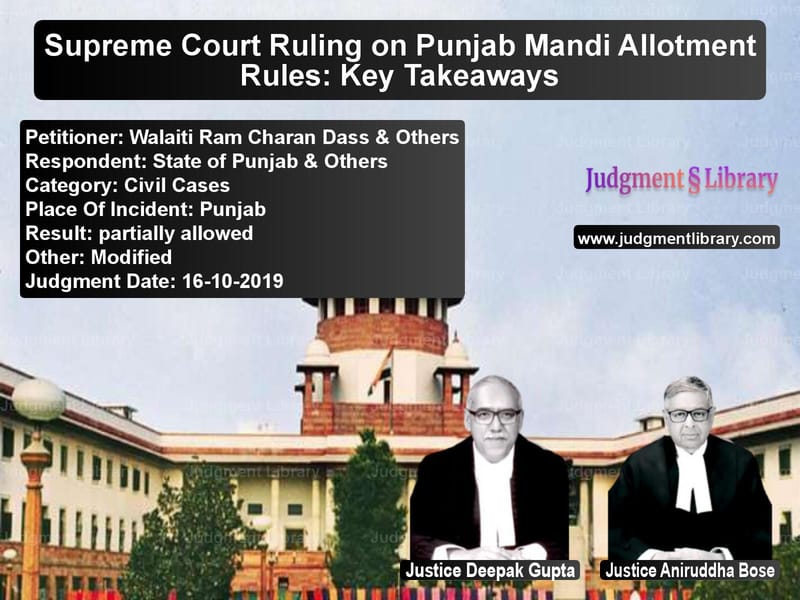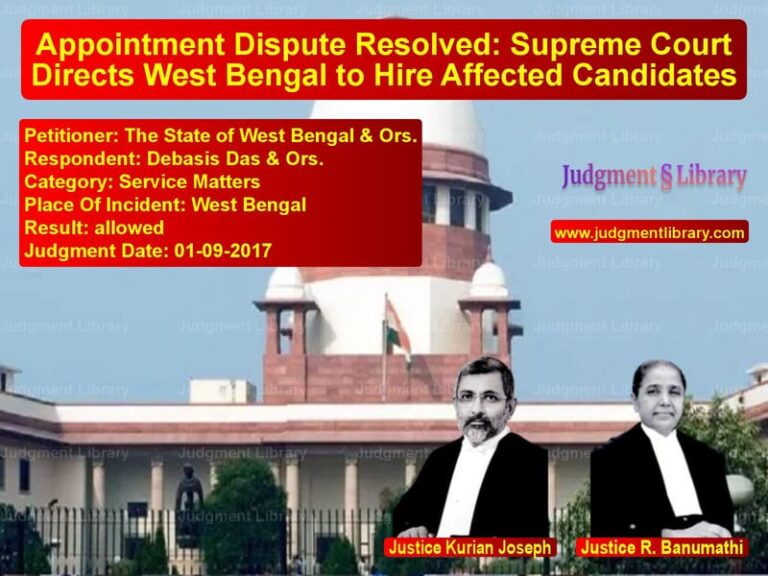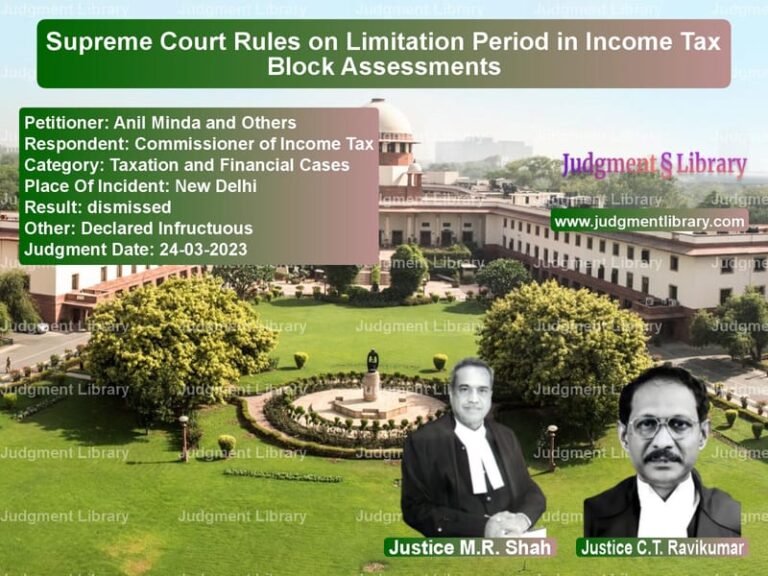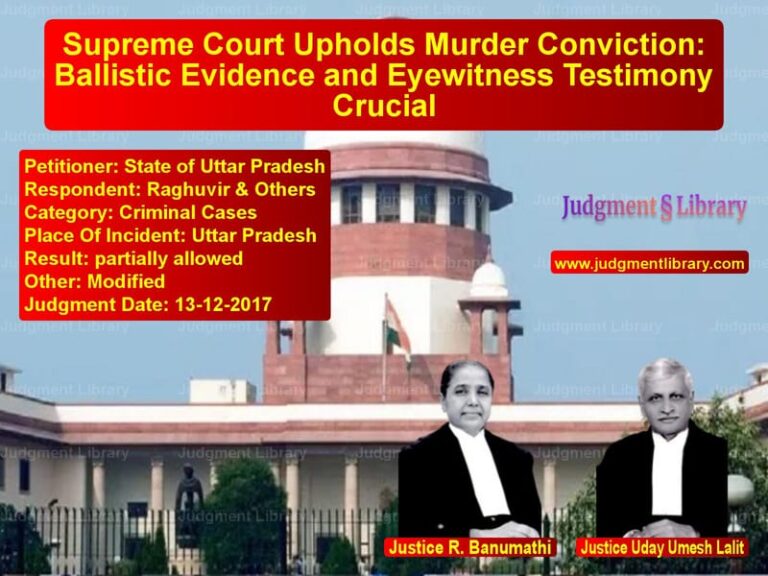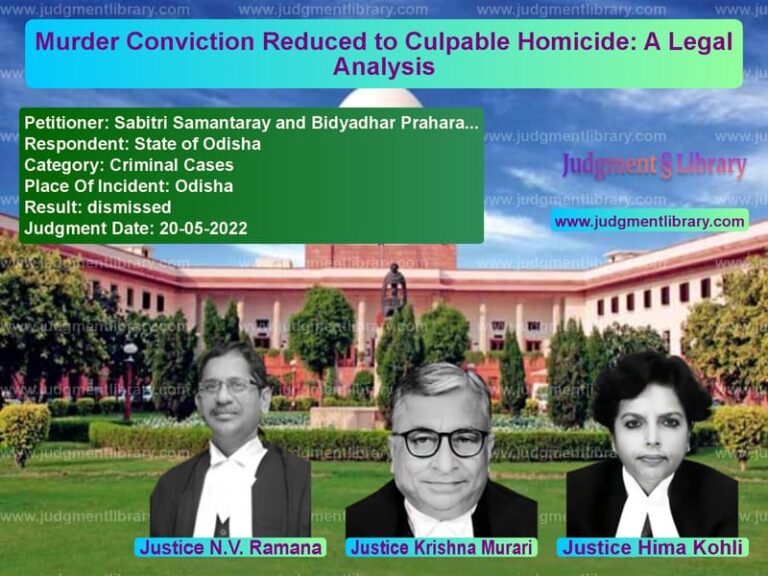Supreme Court Ruling on Punjab Mandi Allotment Rules: Key Takeaways
The Supreme Court, in its judgment dated October 16, 2019, addressed critical legal questions regarding the allotment of plots in Punjab’s agricultural markets. The case arose from multiple appeals challenging the validity of the Punjab State Agricultural Marketing Board (Sale and Transfer of Plots) Rules, 1999, and their amendment in 2008. The petitioners, primarily licensed agricultural traders, contested the restrictions imposed by these rules, while the Punjab government defended them as necessary regulations for fair and organized market development.
Background of the Case
The appeals stemmed from grievances related to the allocation of plots in de-notified market yards. Licensed traders who had been operating in these market yards found themselves at a disadvantage due to changes in regulations regarding eligibility for allotment in newly established markets. The 1999 and 2008 Rules imposed specific conditions, including a minimum business tenure and turnover requirements, which many traders argued were unreasonable and violated the principles established in previous judgments.
Issues Raised in the Appeals
- Whether the 1999 and 2008 Rules violated traders’ rights by imposing stringent eligibility criteria.
- Whether the new rules contradicted the Supreme Court’s previous ruling in Labha Ram and Sons v. State of Punjab (1998), which had emphasized the government’s obligation to provide adequate accommodation to existing licensed dealers.
- Whether the requirement of a minimum turnover and licensing period was arbitrary and violative of Article 14 of the Constitution.
- Whether the government could deny allotment to traders who had missed license renewals due to genuine reasons.
Petitioners’ Arguments
The petitioners contended that:
- The rules unfairly restricted access to market plots, effectively excluding traders who had been operating for years but failed to meet the new criteria.
- The imposition of turnover requirements discriminated against smaller traders and created an unjustified barrier to entry.
- Traders who had been forced to vacate de-notified markets were entitled to preferential allotment without additional conditions.
- The new rules were contrary to the principle laid down in the Labha Ram case, which recognized the need to prioritize existing traders.
Respondents’ Arguments
The Punjab government and market board defended the regulations, arguing that:
- The rules were designed to ensure that only genuine and active traders benefited from the allotment process.
- Setting turnover and licensing period requirements prevented speculative applicants from misusing the system.
- The amendments were made to streamline market operations and promote efficient management of agricultural markets.
- The government was still providing ample opportunities for traders to secure plots, and the regulations were necessary to maintain order.
Supreme Court’s Key Observations
The Supreme Court ruled that while the regulations were not unconstitutional, they must be applied fairly and equitably. Key observations included:
“The requirement of a minimum turnover and licensing period is a necessary measure to ensure that the allocation process remains fair and is not exploited by non-serious applicants.”
“Traders who have been engaged in business for decades but faced lapses due to genuine reasons should not be excluded from consideration.”
Final Judgment
- The Court upheld the validity of the 1999 and 2008 Rules, ruling that they were legally sound and not in violation of Article 14.
- However, the Court directed authorities to consider cases where traders had failed to meet the requirements due to reasons beyond their control.
- The Board was instructed to conduct a review of rejected applicants within three months to ensure fair implementation of the rules.
Key Takeaways
- The ruling reaffirmed that government regulations for market allotments must be reasonable but can include necessary restrictions.
- The Supreme Court balanced the need for regulatory compliance with protection against arbitrary exclusions.
- The decision set a precedent for future disputes involving business licensing and government-allotted commercial spaces.
Conclusion
The Supreme Court’s decision strikes a balance between regulatory discipline and fairness. While upholding the validity of the Punjab Mandi Rules, the judgment ensures that genuine traders are not unfairly excluded due to rigid bureaucratic interpretations. The ruling reinforces the principle that government policies must serve public interest without becoming tools of exclusion.
Petitioner Name: Walaiti Ram Charan Dass & Others.Respondent Name: State of Punjab & Others.Judgment By: Justice Deepak Gupta, Justice Aniruddha Bose.Place Of Incident: Punjab.Judgment Date: 16-10-2019.
Don’t miss out on the full details! Download the complete judgment in PDF format below and gain valuable insights instantly!
Download Judgment: Walaiti Ram Charan D vs State of Punjab & Ot Supreme Court of India Judgment Dated 16-10-2019.pdf
Direct Downlaod Judgment: Direct downlaod this Judgment
See all petitions in Property Disputes
See all petitions in Contract Disputes
See all petitions in Judgment by Deepak Gupta
See all petitions in Judgment by Aniruddha Bose
See all petitions in partially allowed
See all petitions in Modified
See all petitions in supreme court of India judgments October 2019
See all petitions in 2019 judgments
See all posts in Civil Cases Category
See all allowed petitions in Civil Cases Category
See all Dismissed petitions in Civil Cases Category
See all partially allowed petitions in Civil Cases Category

